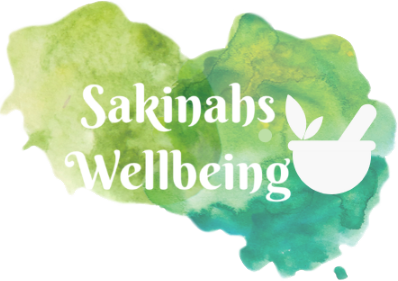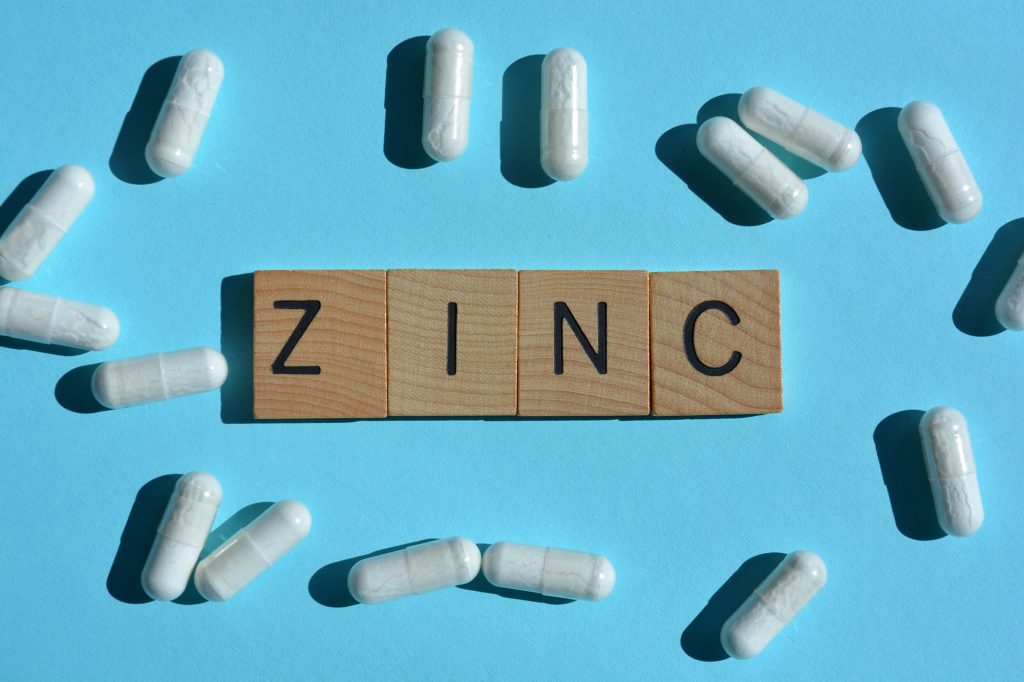WHY DO WE NEED ZINC?
Zinc is needed to produce enzymes that help maintain structural integrity of proteins and regulate gene expression. The biological function of zinc can be catalytic, structural or regulatory. More than 85% of total body zinc is found in skeletal muscle and bone.
Zinc is needed for:
- proper growth, especially during pregnancy, infancy and childhood
- Immune function
- Wound healing
- Proper sense of taste and smell
Zinc is not stored in or manufactured by the body therefore it must be obtained by through diet.
Zinc can be found in meat, liver, fish, poultry, eggs, shellfish, oysters, cereals, nuts, legumes, seeds and dairy foods. Zinc absorption can be affected by protein intake as zinc binds to protein. Lowered protein intake can result in lowered zinc absorption. Lowered protein digestibility can also affect zinc absorption as those who are unable to digest protein well (those with low hydrochloric acid or those taking proton pump inhibitors PPI’s) will also have low zinc levels regardless of intake. Zinc is better absorbed when protein is from an animal source as opposed to a plant source. The resulting requirement for vegetarians can be as much as 50% greater.
Iron intake from diet and supplements can also affect zinc levels as iron and zinc both compete for the same cell receptor. Certain pregnancy supplements are found to be high in iron and this can cause issues.
Zinc depletion can be due to situations of stress, acute trauma, infection and dietary deficiency
Mild deficiency can result in
- Impaired growth
- Suboptimal pregnancy outcomes,
- pre-eclampsia and toxaemia
- Prolonged gestation
- Inefficient labour
- Atonic bleeding
- Low birth weight
- Impaired immune responses
- Anorexia
Severe deficiency can result in:
- Growth impairment
- Alopecia
- Diarrhoea
- Fertility
- Delayed sexual development and impotency
- In males the testis and prostate have the highest concentrations of zinc.
- Zinc is necessary for the formation and maturation of spermatozoa, for ovulation and fertilization
- Eye and skin lesions, rough skin
- Impaired appetite/weight loss
- Impaired sense of smell and/or taste
- Dermatitis
- Night blindness
- Mental fatigue and depression
- Conjunctivitis
Recommendations by life stage and gender
Infants
| Age | AI |
| 0-6months | 2.0 mg/day |
Infants
| Age | EAR | RDI |
| 7-12 months | 2.5 mg/day | 3 mg/day |
Absorption is higher from animal foods than plants sources, so vegetarian infants, particularly strict vegetarians, will need higher intakes.
EAR– estimated average requirement
Children & adolescents
| Age | EAR | RDI |
| All | ||
| 1-3 yr | 2.5 mg/day | 3 mg/day |
| 4-8 yr | 3.0 mg/day | 4 mg/day |
| Boys | ||
| 9-13 yr | 5 mg/day | 6 mg/day |
| 14-18 yr | 11 mg/day | 13 mg/day |
| Girls | ||
| 9-13 yr | 5 mg/day | 6 mg/day |
| 14-18 yr | 6 mg/day | 7 mg/day |
Absorption is higher from animal foods than plants sources, so vegetarians, particularly strict vegetarians, will need intakes about 50% higher than those set.
EAR– estimated average requirement
Adults
| Age | EAR | RDI |
| Men | ||
| 19-30 yr | 12 mg/day | 14 mg/day |
| 31-50 yr | 12 mg/day | 14 mg/day |
| 51-70 yr | 12 mg/day | 14 mg/day |
| >70 yr | 12 mg/day | 14 mg/day |
| Women | ||
| 19-30 yr | 6.5 mg/day | 8 mg/day |
| 31-50 yr | 6.5 mg/day | 8 mg/day |
| 51-70 yr | 6.5 mg/day | 8 mg/day |
| >70 yr | 6.5 mg/day | 8 mg/day |
Absorption is higher from animal foods than plants sources, so vegetarians, particularly strict vegetarians, will need intakes about 50% higher than those set.
Pregnancy
| Age | EAR | RDI |
| 14-18 yr | 8.5 mg/day | 10 mg/day |
| 19-30 yr | 9.0 mg/day | 11 mg/day |
| 31-50 yr | 9.0 mg/day | 11 mg/day |
Note: For women taking high levels of iron supplements during pregnancy and lactation, the current EAR and thus RDI may not be adequate. There is some evidence that high levels of iron supplements prescribed to pregnant and lactating women may decrease zinc absorption.
Lactation
| Age | EAR | RDI |
| 14-18 yr | 9 mg/day | 11 mg/day |
| 19-30 yr | 10 mg/day | 12 mg/day |
| 31-50 yr | 10 mg/day | 12 mg/day |
Upper – level intake
| Age | UL |
| Infants | |
| 0-6 months | 4 mg/day |
| 7-12 months | 5 mg/day |
| Children and adolescents | |
| 1-3 yr | 7 mg/day |
| 4-8 yr | 12 mg/day |
| 9-13 yr | 25 mg/day |
| 14-18 yr | 35 mg/day |
| Adults 19+ yr | |
| Men | 40 mg/day |
| Women | 40 mg/day |
| Pregnancy | |
| 14-18 yr | 35 mg/day |
| 19-50 yr | 40 mg/day |
| Lactation | |
| 14-18 yr | 35 mg/day |
| 19-50 yr | 40 mg/day |
There is no evidence of adverse effects from naturally occurring zinc in food. The UL applies to total zinc intake from food, water and supplements (including fortified food).
Signs of toxicity include
- Nausea/vomiting
- Diarrhoea
- Fever
- Lethargy
- Suppression of immune response
- Decrease in HDL cholesterol
- Reduced copper status
Those who are deficient need to take 25-50mg elemental zinc daily until repleted.
Reduced zinc status can be caused by:
- Coffee, separate intakes by 2 hours
- Copper intakes (100-150mg/day)
- Iron intakes (35-65mg/day) separate by 2 hours
- NSAIDs medications, separate by 2 hours

